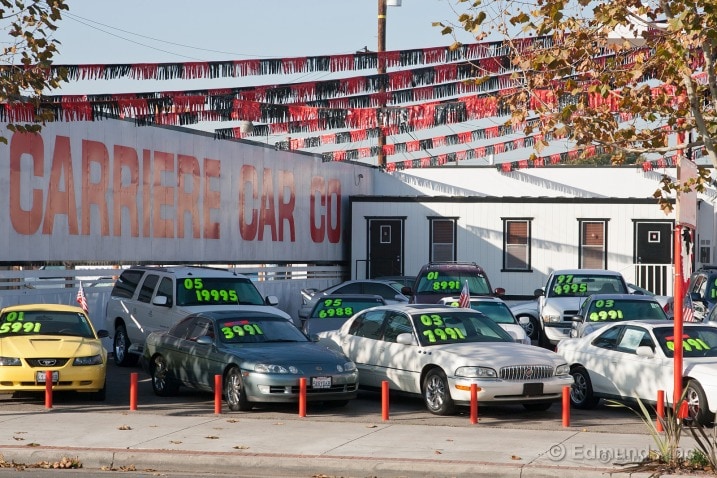Be Ready for the Closer
Some dealerships use a "closer" when the initial salesperson can't make a deal. Typically, the closer tries to get a few hundred dollars more for the dealership. Or he tries to get the customer to agree to the last offer that the dealership made.
While the name "closer" sounds frightening, closers are often personable, skilled salespeople. While some may apply pressure, most will attempt to make a deal by reasoning with customers or cajoling them. Stay focused on the price you know to be the right one.
The closer may also bring out what's known as a "four-square" sheet, especially if you have a trade-in. The four-square can be confusing for the customer. But if you sell your current vehicle privately rather than trading it in, secure your own financing and know your ideal down payment and monthly payment, then you won't get caught off-guard by the four-square.
Step 6: Closing the Deal
It's likely that, after you have verbally agreed on a price, the salesperson or closer will extend his hand and say, "Congratulations! We have a deal!" Shake hands and agree to the deal, but keep in mind that nothing is binding until you sign the contract.
Several things need to happen before the deal is finished. First, depending on your state laws, you may need to show proof of insurance. You can arrange this in advance or on the spot by calling your insurance agent (bring their phone number with you to the dealership). Then you need to review and sign the contract and several related documents.
If you decide to accept the dealership's financing, you may get another pitch in the finance and insurance office for products such as an extended warranty. Some people prefer the peace of mind that such a warranty provides. But bear in mind that even extended warranty prices are negotiable, and many used cars still have the remainder of the factory warranty in effect.
Finally, your paperwork will be ready. You'll sign an agreement to furnish an insurance policy and perhaps a "Due Bill." The Due Bill would state what repairs, if any, the dealership had agreed to perform to the car during the negotiation process.
Then there's the actual sales contract. In addition to the purchase price of the car, here are some of the fees you can expect to pay:
- Documentation fee (varies from state to state)
- Smog fee certification, or other minor environmental fees
- Sales tax (varies by state, county and city)
- Motor vehicle registry fees (vary by state)
For more details on closing fees, read What Fees Should You Pay?
Reap the Rewards
Buying a used car requires more research and negotiating than does a new-car purchase. But if you follow these steps, the buying process can be fun. And the best part is that your used car will save you a lot of money in the years to come.

